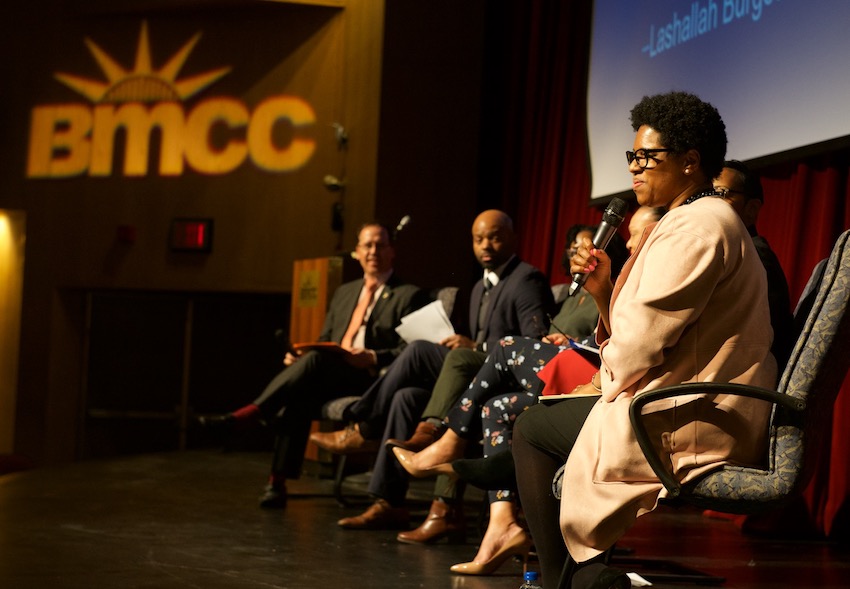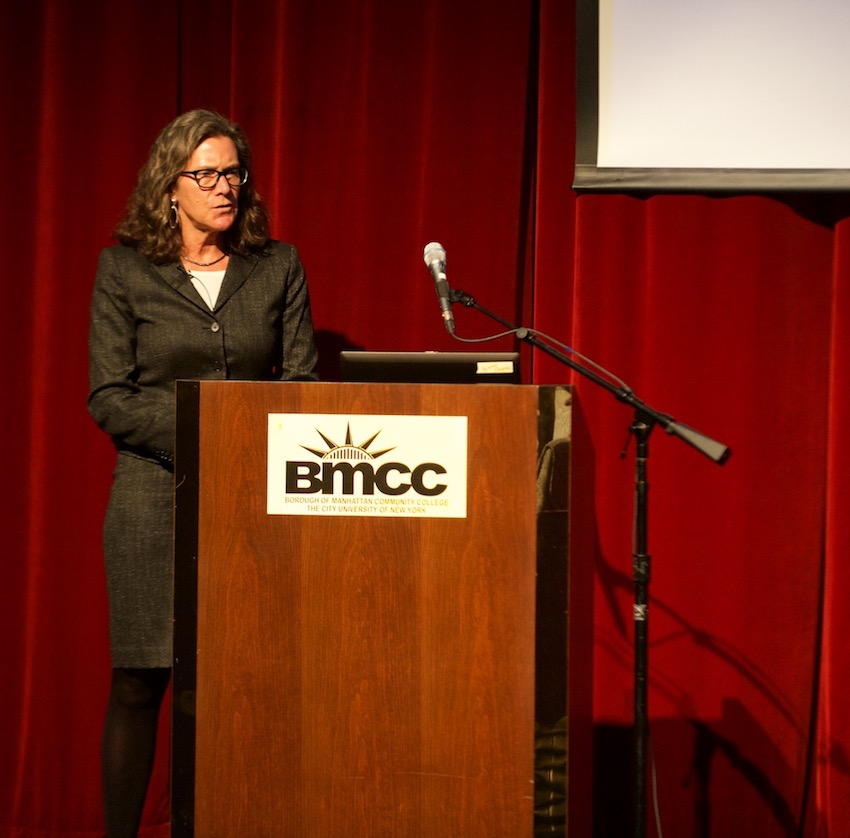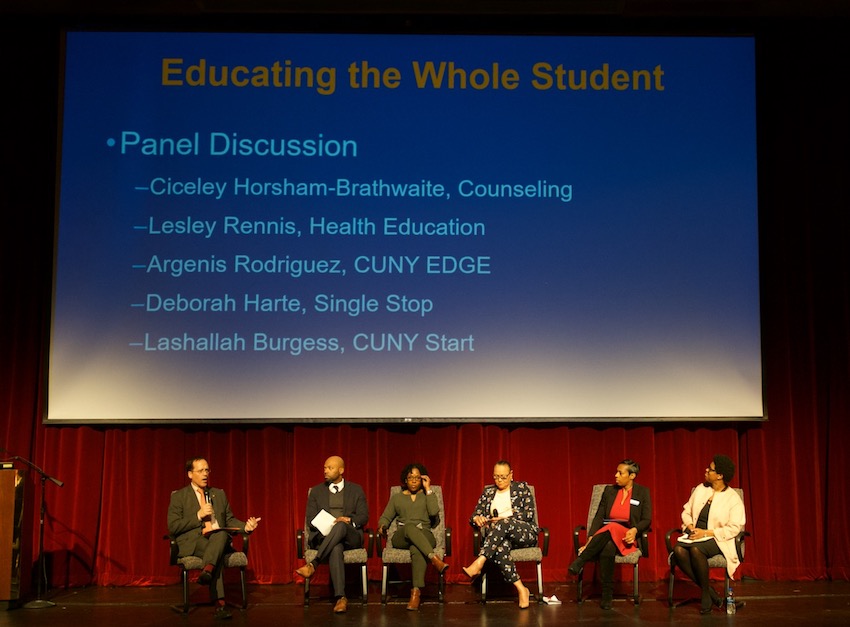
The third annual Borough of Manhattan Community College (BMCC/CUNY) Designing for Success Winter Convocation was held January 23 at 199 Chambers Street.
The day’s events opened with an address by BMCC Interim President Karrin E. Wilks. “The winter convocation is an important tradition, and an opportunity for our college community to come together,” Wilks said. “I’m happy that we’re integrating faculty and staff in this event. Part of the purpose of our coming together is to learn from each other, and share what we know about student success.”
Wilks presented data on BMCC student retention, graduation and transfer rates, and discussed how the college’s over-arching Designing for Success efforts address students’ experience through “multiple action plans integrated into a single process.”

“Incremental improvement isn’t good enough,” she said. “We need to deeply understand the data, to look at the standard indicators and disaggregate that data by gender, race and ethnicity. We’ve doubled the number of students who earn 30 credits in their first year, and we need to scale that up. Numbers might look good, but we need to look closely at who is improving, and who is not improving.”
Wilks also explained that there are bifurcating results in the data on student success at BMCC—data that seem to report opposing facts. “As graduation rates go up, fall-to-fall retention rates are going down,” she said. “Why is this happening? Who is not being retained? Also we recently had the most students ever on the Dean’s List—but we also had the most students ever, on academic probation. We need to disagregate the data by gender, race and ethnicity and figure out what this really means.”

Another important factor in improving student retention and graduation, she said, is meeting students’ “essential needs”; addressing issues such as food and housing insecurity, “choices students are having to make between food and textbooks, subway fare or paying a bill.” To gather students’ point of view, she said, the college will hold student focus groups this spring asking the question, “What are the barriers to your success?”
Another focus of Wilks’ talk was the success of cohort models at BMCC, including ASAP, EDGE, the BMCC Learning Academy and others—and the importance of scaling up those programs, to serve more students.
“Thirty-seven percent of our students are now in a cohort program,” she said. “We want that number to be 100 percent. Students in those programs do twice as well as their peers.” Tutoring, she added, is also a factor proven to improve student success: “How do we take tutoring to scale, and make it embedded in the experience of all students at BMCC?”
Wilks’ presentation was followed by questions from audience members who brought up the cost of enhancing tutoring programs, how to better serve students with disabilities, the importance of Single Stop at BMCC as a resource for students experiencing food or housing insecurity, the value of best practices at CUNY and colleges nationwide, and the importance of articulation agreements that link BMCC associate degree programs with baccalaureate programs within CUNY and with other universities in the region.
The opening address was following by breakout sessions on a wide range of topics. These included service learning, promoting student agency through open pedagogy, challenges facing student veterans, digital citizenship and others. A boxed lunch was provided for participants, and the convocation closed with a resource fair and performance by the BMCC Jazz Ensemble led by Professor Quentin Angus in the faculty-staff dining room.
The Winter Convocation’s focus on student success—and the entire college community’s role in contributing to that success—will continue at the Designing for Success Forum scheduled for February 4 at BMCC.
STORY HIGHLIGHTS
- Third annual winter convocation at BMCC brought faculty and staff together to share their strategies for building students success
- Convocation opened with an address by Interim President Karrin E. Wilks, who shared data and questions raised by the findings
- Breakout sessions focused on service learning, promoting student agency through open pedagogy, digital citizenship and other topics, and the day closed with a resource fair and performance by the BMCC Jazz Ensemble

